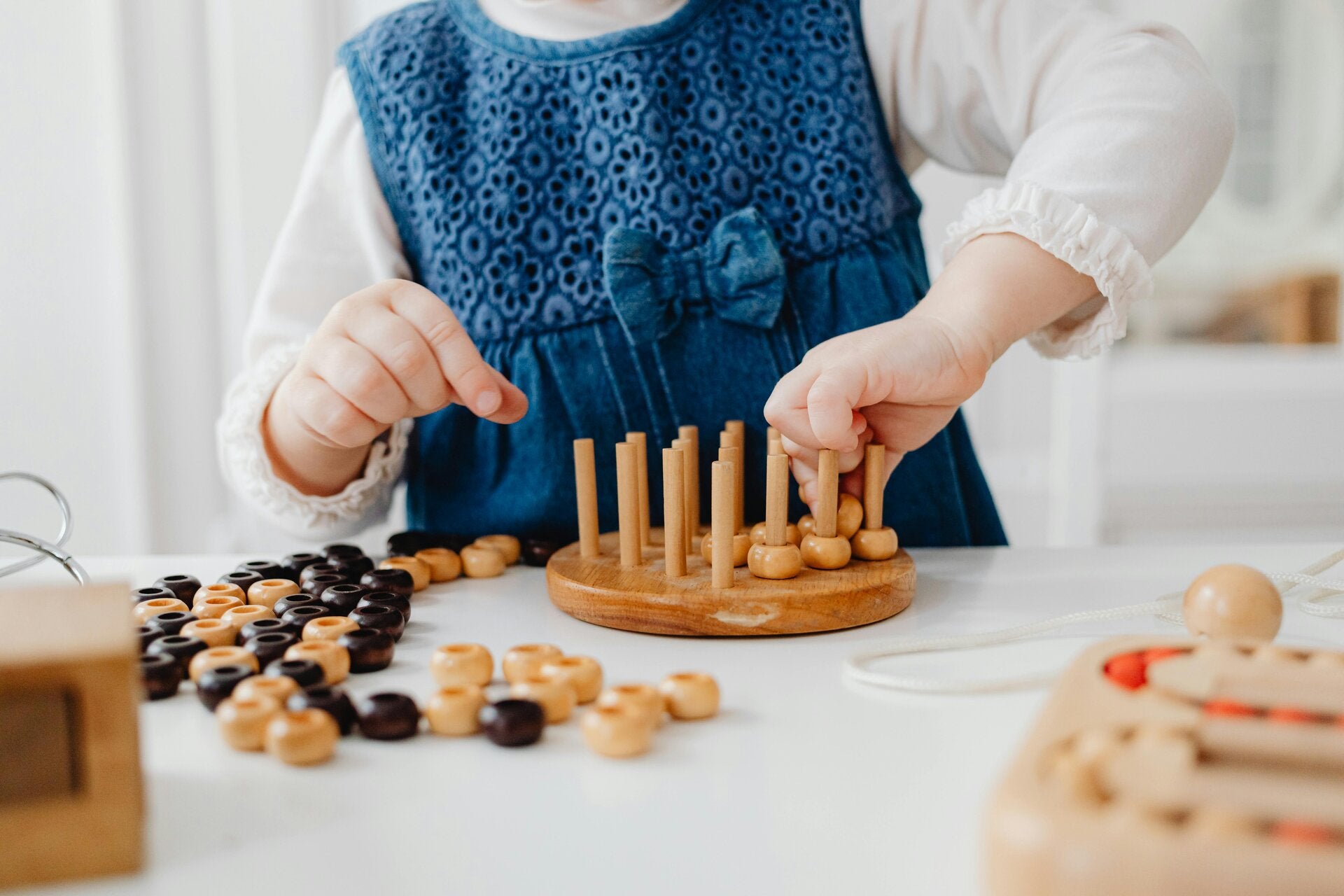Definition:
Fine motor skills involve coordinating small muscles in the hands and fingers. They are essential for self-help tasks like dressing and eating and later literacy and digital learning skills such as handwriting and keyboarding (Owens, 2008).

Why it matters:
Fine motor skills and coordination in the early years form the foundation for academic skills. As Duncan (2012) explains, play-based experiences - like building, creating, and exploring with different materials - naturally strengthen these abilities, as children manipulate materials, build, and create. Similarly, Becker, Rigaud, and Epstein (2023) highlight that children often demonstrate their abilities best in everyday, informal situations, not just through structured tests.

How you can help:
Adults can provide playful, engaging activities that strengthen hand–eye coordination and dexterity. As Windows on Learning reminds us, documenting these small milestones — from holding scissors to forming letters — makes progress visible and meaningful (Helm, Beneke, & Steinheimer, 2007).

Examples:
- Threading and Beading Games: Offering string and beads develops pincer grip and concentration, allowing children to make patterns.
- Playdough Creations: Kneading, rolling, and shaping playdough strengthens hand muscles and encourages creativity.
Strategies for Parents & Communities:
-
Provide daily opportunities for playdough, clay, or putty play to strengthen hand muscles.
-
Encourage children to use scissors safely with craft activities.
-
Offer threading, beading, and peg activities to refine pincer grip.
-
Include real-life tasks like cooking (stirring, pouring, peeling) to support coordination.
-
Provide a range of drawing and mark-making tools (pencils, chalk, markers, paintbrushes).


Resources:
-
Owens (2008) – NCAC guide to fine motor development.
-
Windows on Learning (Helm, Beneke, & Steinheimer, 2007) – documenting children’s fine motor progress.
-
Getting to Know Young Children (Becker, Rigaud, & Epstein, 2023) – alternative assessments of fine motor development.
References:
Becker, I., Rigaud, V. M., & Epstein, A. (2023). Getting to know young children: Alternative assessments in early childhood education. Early Childhood Education Journal.
Helm, J. H., Beneke, S., & Steinheimer, K. (2007). Windows on learning: Documenting young children’s work (2nd ed.). Teachers College Press.
Owens, A. (2008). Supporting children’s development: Fine motor skills. Putting Children First.

Create Your Own Website With Webador